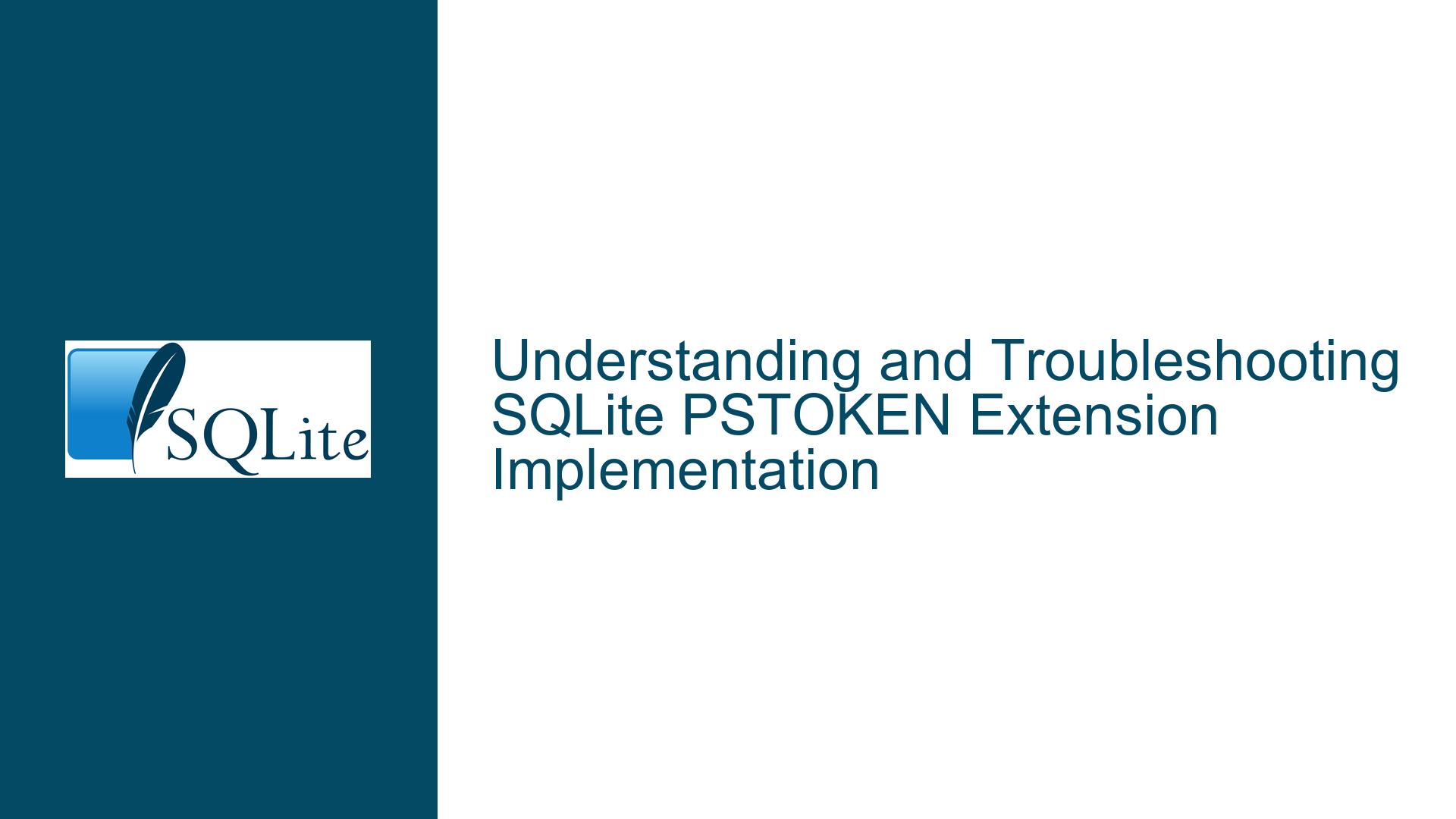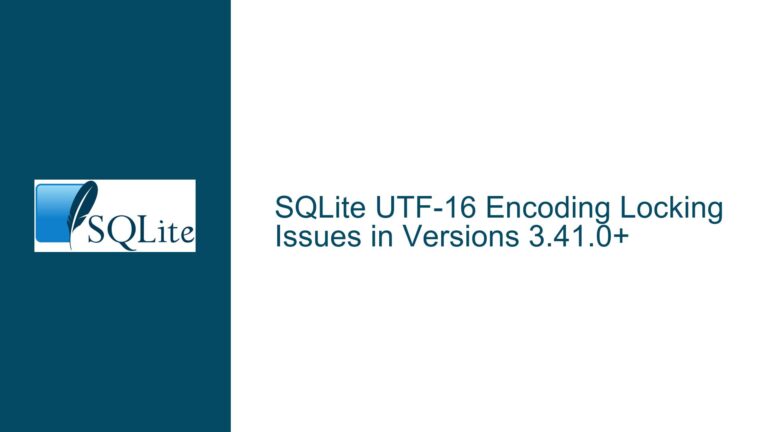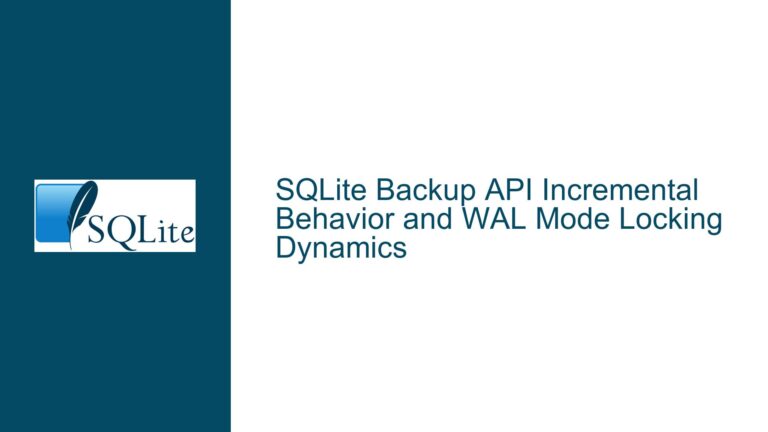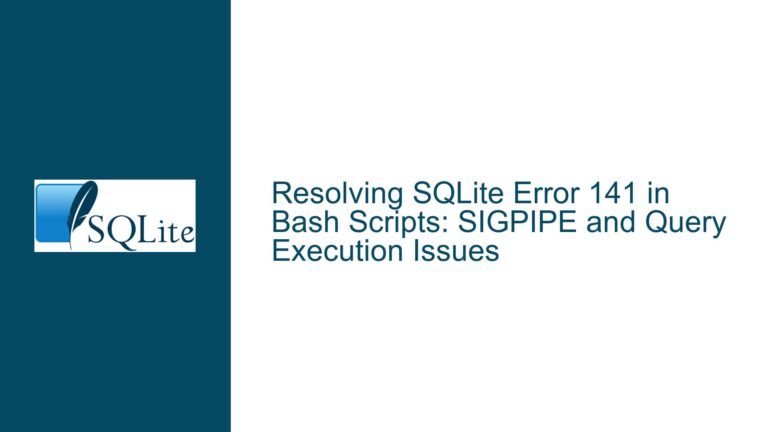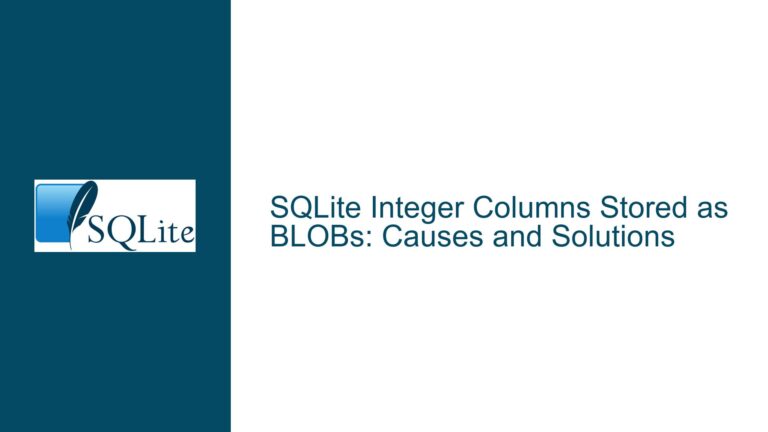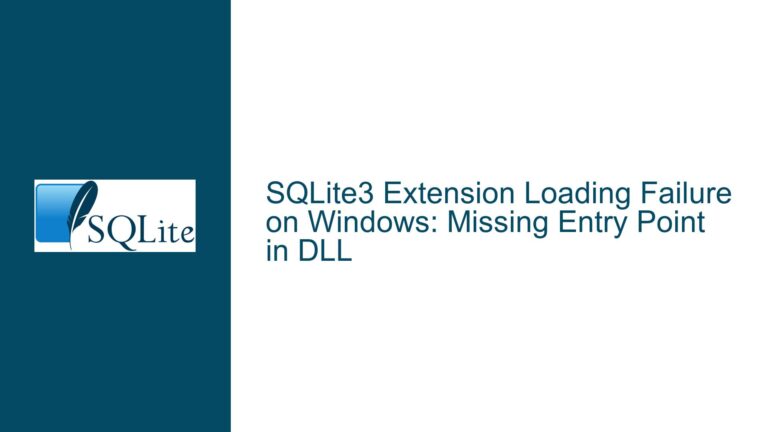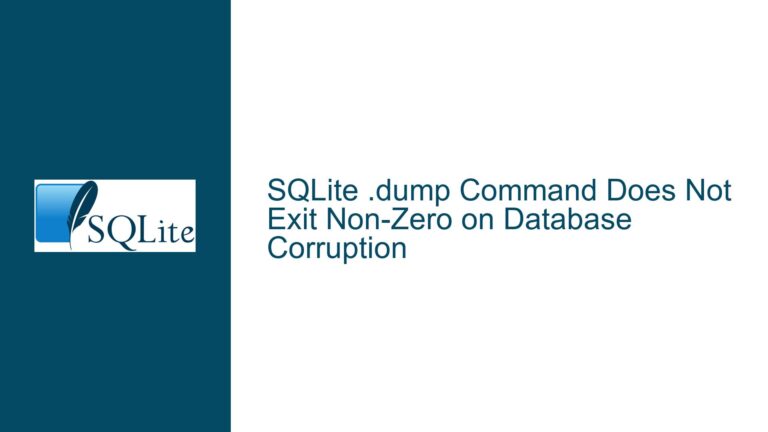and Troubleshooting SQLite PSTOKEN Extension Implementation
Issue Overview: PSTOKEN Extension Functionality and Potential Pitfalls
The PSTOKEN extension for SQLite is designed to facilitate the conversion of SQLite data types into PostScript tokens, which can be directly interpreted by PostScript programs. This extension introduces three primary functions: PSTOKEN, PSTOKEN1, and PSTOKENA. Each function serves a distinct purpose in token generation, but they share a common goal of transforming SQLite data into a format that PostScript can readily consume.
The PSTOKEN function generates an executable array token from multiple arguments, effectively encapsulating the provided data into a PostScript array. The PSTOKEN1 function, on the other hand, creates a single token from a single value, simplifying the process when dealing with individual data points. Lastly, PSTOKENA is an aggregate function that consolidates all values from multiple rows into a single executable array token, making it particularly useful for batch processing.
The extension handles various SQLite data types, including NULLs, floats, integers, texts, and blobs. NULL values are converted to //null, which assumes that the PostScript environment has a predefined null value. Texts and blobs are both converted into PostScript strings, with blobs using a hex string literal syntax for representation. This conversion ensures that the data remains consistent and interpretable within the PostScript context.
However, the implementation of this extension is not without its challenges. The code provided reveals several areas where issues might arise, particularly concerning memory management, error handling, and the correct interpretation of data types. For instance, the use of sqlite3_str for string manipulation introduces potential risks related to memory allocation and deallocation, especially when dealing with large datasets or complex queries. Additionally, the handling of NULL values and the assumption that null is predefined in the PostScript environment could lead to unexpected behavior if this condition is not met.
Possible Causes: Memory Management, Error Handling, and Data Type Interpretation
One of the primary concerns with the PSTOKEN extension lies in its memory management strategy. The extension relies heavily on the sqlite3_str API for constructing PostScript tokens. While this API is powerful and flexible, it requires careful handling to avoid memory leaks or corruption. The code snippet shows that sqlite3_str_new is used to allocate memory for string construction, and sqlite3_str_finish is called to finalize the string and free the associated memory. However, if an error occurs during this process, such as a memory allocation failure (SQLITE_NOMEM) or a string size exceeding the limit (SQLITE_TOOBIG), the extension must ensure that all allocated resources are properly released. Failure to do so could result in memory leaks, which would degrade performance over time and potentially lead to application crashes.
Error handling is another critical aspect that requires attention. The extension uses sqlite3_result_error_toobig and sqlite3_result_error_nomem to signal errors when the string size exceeds the limit or when memory allocation fails, respectively. While these functions are appropriate for indicating errors, the extension must also ensure that any partially constructed strings are properly cleaned up before returning an error. The current implementation attempts to handle this by calling sqlite3_free on the unfinished string, but it is essential to verify that this cleanup is consistently applied in all error paths.
Data type interpretation is another area where issues might arise. The extension converts SQLite data types into PostScript tokens, but this conversion process must be precise to avoid misinterpretation of the data. For example, the handling of NULL values assumes that the PostScript environment has a predefined null value. If this assumption is incorrect, the resulting PostScript code may fail to execute as intended. Similarly, the conversion of texts and blobs into PostScript strings requires careful attention to escape sequences and character encoding. The current implementation uses a loop to process each character in the text or blob, applying escape sequences for special characters and converting non-printable characters to their octal representation. While this approach is generally sound, it is crucial to ensure that all edge cases are handled correctly, such as strings containing nested parentheses or backslashes.
Troubleshooting Steps, Solutions & Fixes: Ensuring Robust Memory Management, Comprehensive Error Handling, and Accurate Data Type Conversion
To address the potential issues with memory management, it is essential to implement a robust strategy for allocating and deallocating memory. One approach is to use a wrapper function that encapsulates the creation and destruction of sqlite3_str objects. This wrapper function would ensure that all allocated memory is properly released, even in the event of an error. For example, the wrapper function could use a goto statement to jump to a cleanup label if an error occurs, ensuring that all resources are freed before returning. Additionally, the extension could benefit from using SQLite’s memory management functions, such as sqlite3_malloc and sqlite3_free, to ensure consistency with the rest of the SQLite codebase.
Comprehensive error handling is crucial for ensuring the reliability of the PSTOKEN extension. The extension should be modified to handle all possible error conditions, including memory allocation failures and string size limits. This can be achieved by adding additional checks and cleanup routines throughout the code. For example, before calling sqlite3_str_append, the extension could check the remaining capacity of the string buffer and return an error if the limit is exceeded. Similarly, the extension should ensure that all error paths lead to the proper cleanup of resources, preventing memory leaks and other issues.
Accurate data type conversion is essential for the correct functioning of the PSTOKEN extension. To ensure that NULL values are handled correctly, the extension could include a check to verify that the PostScript environment has a predefined null value. If this check fails, the extension could either define the null value itself or return an error indicating that the environment is not properly configured. For text and blob conversion, the extension should be tested with a wide range of input data, including strings with special characters, nested parentheses, and non-printable characters. This testing will help identify any edge cases that are not currently handled and allow for the implementation of additional safeguards.
In conclusion, the PSTOKEN extension for SQLite offers a powerful tool for converting SQLite data into PostScript tokens. However, to ensure its reliability and robustness, it is essential to address potential issues related to memory management, error handling, and data type conversion. By implementing a robust memory management strategy, comprehensive error handling, and accurate data type conversion, the extension can be made more reliable and suitable for use in a wide range of applications.
